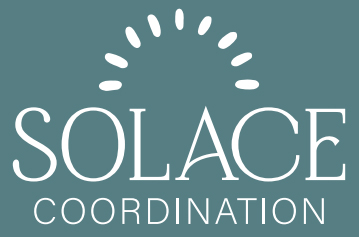Support coordination is a capacity building support funded by NDIS to implement all supports your plan including informal, mainstream, community and funded supports.
Support Coordination
Functions
Level 2
Coordination of Supports
Understand the plan:
The first function for a Support Coordinator is to support you to understand your NDIS plan
Connect with Support and Services:
Your support coordinator has extensive knowledge of services that are available for you in your community. We will explore the role of informal, community and broader systems of support before connecting to funded supports to make the most of your NDIS funds
Design support approaches:
Your Support Coordinator will collaborate with you to design a detailed program to link your NDIS goals to a diverse range of supports and services that most appropriately support you to implement your NDIS plan. We will help you to work out your preferences, negotiate prices with providers and discuss levels of service.
Establish Supports:
Your support coordinator will help you to connect with providers and implement and manage your NDIS plan. We will also be here for all the tricky parts of working with a service, the paperwork, the troubleshooting.
Coach, Refine and Reflect:
Your Support Coordinator is required to monitor the implementation of your NDIS plan to make sure it is being utilized in line with plan spend and expectations. We will talk with you about this regularly. We will work through any barriers and help you plan to address them.
Targeted Support Coordination:
Your support coordinator will deliver your support in a focused and targeted way to support you in your journey with PND. We have key skill sets across our team that will assist you through each phase of your NDIS and diagnosis journey.
Crisis: Planning, Prevention, Mitigation and Action:
During the lifecycle of your NDIS plan, you might experience times of crisis or a significant change in circumstances. Your support coordinator is here to assist you to prepare for and navigate these events. Whilst we can’t manage or resolve the crisis itself, we will work with you to have an emergency plan for that time.
Build Capacity and Resilience:
Your support coordinator will work with you and your informal supports increase skills in dealing with complex factors, managing your stakeholders and other government services to help you overcome barriers and implement your plan.
Reporting to the NDIA:
At the request of the NDIA and with your permission, where funds permit, your Support Coordinator is required to submit reports to the NDIA to inform and update the agency about the provision of their services to you.
Support Coordination
Functions
Level 2
Coordination of Supports
Advocacy:
Support coordinators can assist participants understand how they will engage and participate in NDIA processes; however, Support Coordinators are not funded to act as an Advocate in NDIA processes as advocacy services are funded separately by the Department of Social Services (DSS).
Provider of Last Resort:
Support Coordinators are not a ‘Provider of Last Resort’. Whilst a Support Coordinator may have some role to play during crisis and establishing supports; Support Coordinators are not responsible or required to deliver a direct service to a participant as a last resort.
Substitute Decision Making:
Support Coordinators are not a substitute or legal decision makers. Support Coordinators are not able to make decisions on behalf of the participant or their legal decision maker. Rather a Support Coordinator is able to support a participant and/or their legal decision maker to make their own informed decisions.
Alternative funded services specified in the NDIS Price Guide:
There are many supports and services that a participant might purchase through their NDIS funded supports. It is necessary to consider the NDIS Price Guide and identity if there is a service that aligns with the particular request or need of the Participant. The Support Coordination budget can only be used to deliver Support Coordination to participants and the budget’s funding cannot be used to flexibly fund other supports.
Other Government Services:
The NDIA expects that Support Coordinators will first consider the role of informal community and other government supports before the use of funded supports. Broader systems of supports are universally available government services and supports that all Australians have a right to access (These may include: – Health; – Mental Health; – Early Childhood Development; – Child Protection & Family Support; – School Education; – Employment; – Housing; – Transport; – Justice; – Aged care; – Higher Education; and – Vocational Education and Training),
Case Management:
NDIS funded Support Coordination is not intended to undertake the functions of formal Case Management as delivered through broader systems of support. Generally, case management is a process of assessment, facilitation, and evaluation for options and services to meet an individual’s and family’s comprehensive and holistic needs.
Contact the Solace Coordination team to find out if we can meet your needs.
We will contact you within 24 hours to schedule a no obligation, no cost introductory meeting. It is important to us that you have an opportunity to ask us questions and evaluate if we are the right service for you.
Check out some other Support Coordinators so you can compare services. This is an important choice, and we want you to be informed.
